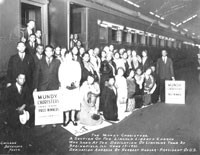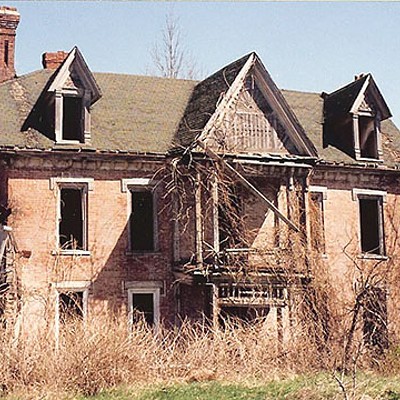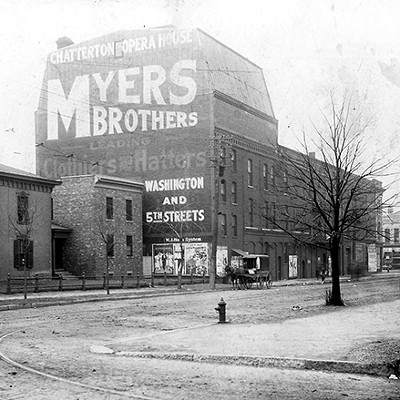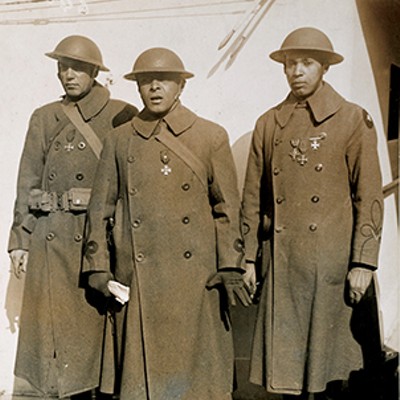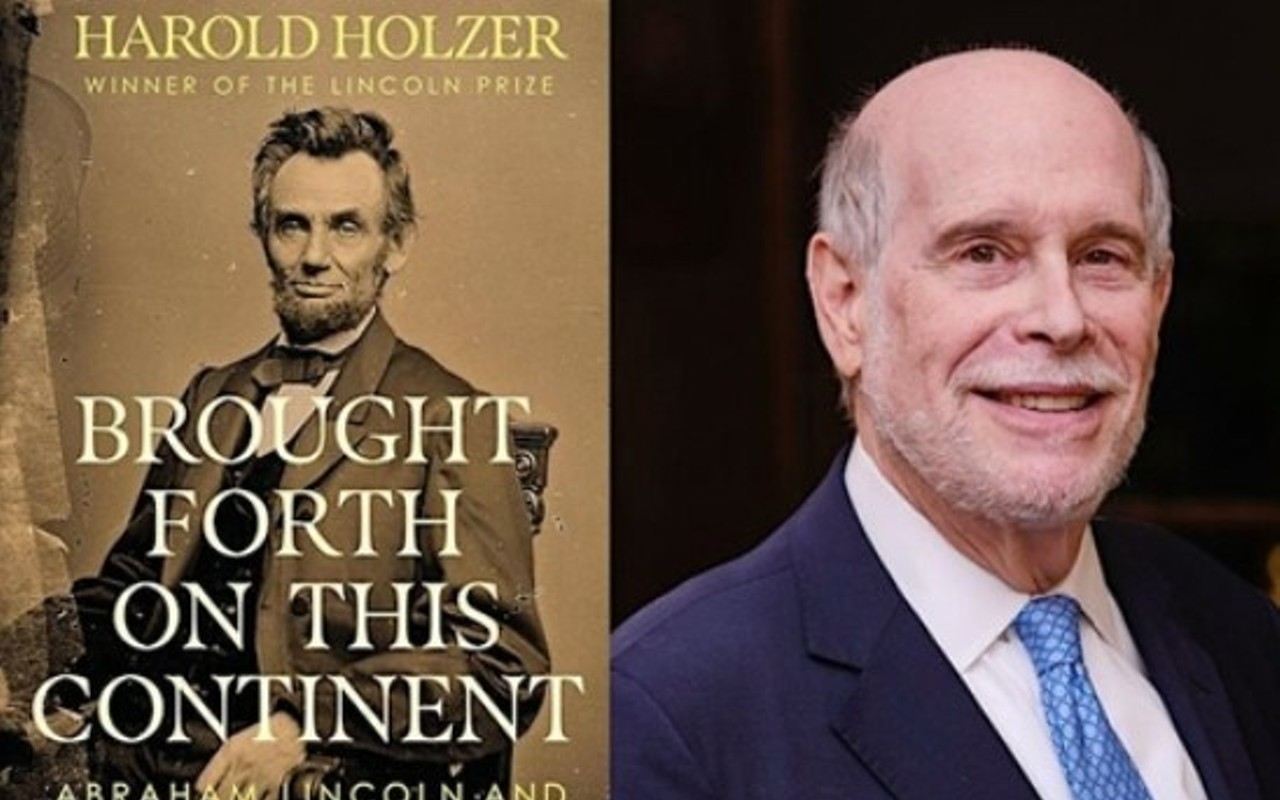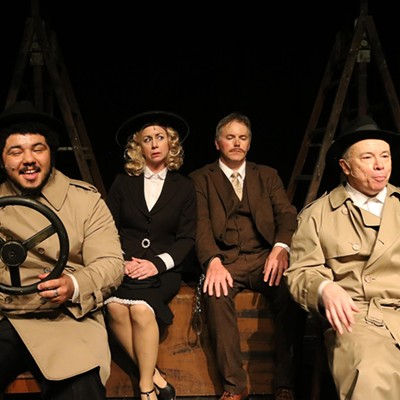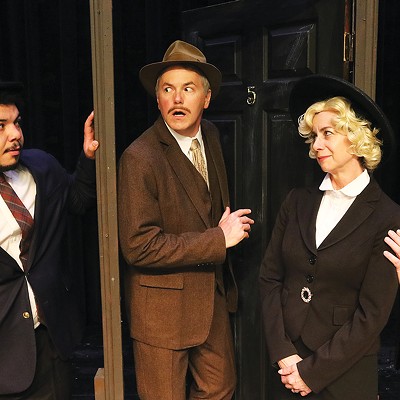With all the hyperbolic and near-hysterical rhetoric flying around Springfield like so much chaff at a threshing party ("Is Springfield ready?"), one might be excused for thinking that never before has this city found itself at the center of national attention for even so much as a day. It is true that Springfield is now facing the scrutiny of a great number of first-time visitors with the opening of the Abraham Lincoln Presidential Library and Museum, but it is certainly not the first time that we have found ourselves in the national spotlight. The residents here took great pains to prepare the city for the arrival of President Herbert Hoover and first lady Lou Henry Hoover on June 17, 1931. The Hoovers appeared before 40,000 people and a coast-to-coast radio audience at the rededication of the Lincoln Tomb.
In 1931, the tomb was already nearly 57 years old. It had been dedicated on Oct. 15, 1874, by our 18th president, Ulysses Grant, at a ceremony that had also drawn thousands of visitors from near and far. By 1931, however, it was antiquated and in a state of disrepair, and so the 56th General Assembly passed a bill, approved by the governor, appropriating $175,000 for its rehabilitation. That was real money in 1931, a sum that allowed for radical and lasting improvements that endure to this day. The monument was largely deconstructed, enlarged, and rebuilt with many new features. It was necessary to replace nearly all of the brickwork with better-quality brick and mortar, and reinforced concrete was added where necessary. Heating and cooling systems were installed, new corridors and burial chambers were added, and a new sarcophagus was constructed. The remains of Lincoln's grandson were removed and reburied with those of his father, Robert Lincoln, in Arlington National Cemetery. The famous Gutzon Borglum bronze, it of the shiny nose, was acquired and placed at the tomb's entrance. (Borglum, incidentally, is the same artist who carved Mount Rushmore.)
A special program of events was planned for the Hoovers, who traveled to Springfield on a special train from Marion, Ohio, where they had participated in similar ceremonies the day before at the dedication of the burial place of President Warren G. Harding. Illinois Gov. Louis L. Emmerson and his wife, Anna, met the presidential entourage at the Wabash Depot and escorted them back to the Executive Mansion, where they enjoyed a lavish luncheon party. Before visiting the Lincoln home, Mrs. Hoover, the honorary national commander of the Girl Scouts, was presented with a wreath by a contingent of her preteen subalterns. She later placed the wreath at the tomb.
An impressive musical program, under the direction of William Dodd Chenery, accounted for a substantial part of the rededication ceremony. It included the University of Illinois concert band and various choral groups, among them the Lincoln Liberty Chorus, which was directed by James A. Mundy of Chicago. His group, the Mundy Choristers, formed part of the Liberty Chorus and was acknowledged to be the best choral group in Chicago, having won a competition sponsored by the Chicago Tribune as part of that city's jubilee celebration. Mundy was no stranger to Springfield; he had brought another choral group here in January 1919 for a patriotic musical program at the old State Arsenal that was held in connection with the state's centennial and also celebrated the end of World War I. It, too, was conducted by Chenery, who called Mundy a genius.
"Words cannot convey," Chenery wrote after the rededication, "the fullness of his ability to gain the maximum of effect from the splendid company of singers." Mundy's group sang a selection of Negro spirituals, including "Deep River," "Listen to the Lambs," and "Swing Low, Sweet Chariot." Later that night, they sang a musical program at St. Paul's African Methodist Episcopal Church.
Mundy was born the son of a former slave in Maysville, Ky., in 1886. He moved to Chicago in 1912, and in 1914 he directed the first African-American chorus to perform at Orchestra Hall. His reputation, and the reputation of his singing groups, was so great that he was invited to direct groups at such occasions as the 1916 dedication of Municipal (now Navy) Pier and the closing ceremonies for the 1933 World's Fair. He was known as the dean of choral directors, and he trained thousands of black singers in his long career. He was choirmaster at Olivet Baptist Church for many years, and he gave voice and piano lessons into his 90s. Mundy died in Chicago on Christmas Day 1978 without any close relatives.
One of the Girl Scouts who presented the wreath to Mrs. Hoover that day was Eleanor Lloydof Springfield (a.k.a. Mom to me.) Mom -- er, Lloyd, later Cavanagh -- was then a sixth-grader at Butler School. The girl who actually presented the wreath, she says, was Widney Ann Watson, the governor's granddaughter.
"Then, as now, rank had its privilege," she says.
Because the Abraham Lincoln Presidential Library is moving to its new Sixth Street location, "History Talk" will be on a short hiatus. The column will return when the dust settles.

